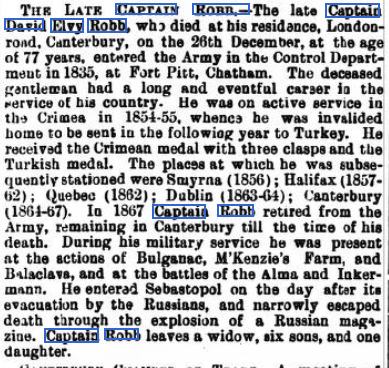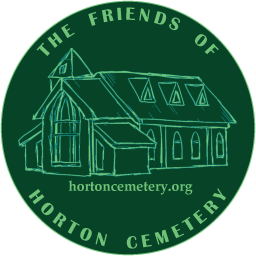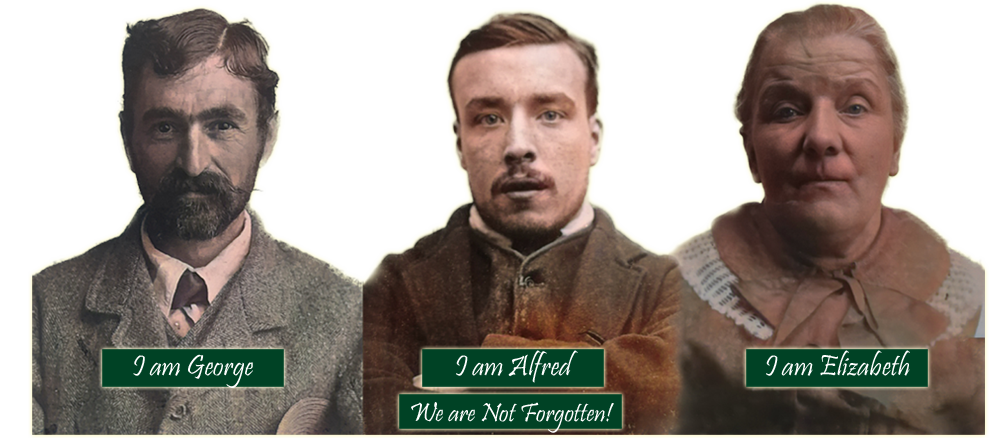b.1856-d.1917
Compared to many of those who died in Long Grove and are buried in Horton Cemetery, David Robb lived a life seemingly unaffected by poverty. The son of a commissioned officer in the army, he became a civil servant. He married the daughter of a successful wool-merchant and had a son. He would never have expected to end his life in a mental asylum and to be buried in a pauper’s grave.
David’s parents
His father, David Elvy Robb, was born in Dublin in 1816 to David and Judith Robb, but was baptised in Rainham in Kent on the 2nd of April 1819.
In the 1841 census we find his father, David, now aged 25, working as a medical clerk and living in Chatham High Street.
The 1850s
In December 1850, in Tonbridge, David married Eliza Ann Cotsell, the daughter of George Cotsell, a stationer from Portsea in Portsmouth. Born in 1833, Eliza was 17 years younger than her husband. We do not know how the couple met.
In the 1851 census, David and Eliza are living at 20, Waterloo Place in Chatham. David is still a medical clerk but is now ‘attached to the army’. The couple’s first child, Henry Valentine, was born in 1854 and David was born two years later on the 8th of October 1856. At the time of his birth, the family was living at 6, Garden Street, Brompton, Gillingham in Kent. David was now a ‘purveyor to the forces’.
The 1860s and 1870s
The Robbs do not appear in the 1861 census. This is explained by their entry in the 1871 census where we learn that Eliza has given birth to three more children. Edward was born in Nova Scotia in 1862, and Eliza and Percy were born in Ireland in 1864 and 1865 respectively. From this, we assume that David senior’s family accompanied him while he was serving in the army.
By 1871, David has retired, having reached the rank of captain. The family is living at 4, Melbourne Terrace, Monastery Street in Canterbury. 14 year-old David junior is a scholar.
The 1880s – marriage
By 1881, David had moved to London. In the census of that year, we find him lodging at 27, Woburn Place in Bloomsbury. He has joined the Civil Service and is working as a clerk in the legacy duty department at Somerset House, the Inland Revenue having taken offices there in 1873.
Three years later, on the 22nd of September, 1884, David married 26 year-old Alice Underdown Southee at St Peter’s Church in Regent Square, Camden. At the time of his marriage, David was living at 2, Lansdowne Road in Southwark.
Alice was the daughter of Jennings Underdown Southee of Canterbury so we can assume that the couple had met before David moved to London. Jennings Southee was described in the 1881 census as a ‘wool stapler and fellmonger, employing 4 men and I boy’. A wool-stapler is ‘a person who buys wool from a producer, grades it and sells it’ while a fellmonger is ‘a dealer in hides or skins, particularly sheep skins’.
It would seem that Southee was successful in his business dealings as, when he died in 1887, his estate was valued at £3,295-5s-6d, equivalent to over £440,000 today.
The 1890s and 1900s
In the 1891 census David and Alice are living at 104, Frithville Gardens in Hammersmith – a property they share with one other family – and David is a ‘civil service writer’.
David’s father died in December 1892, with the following obituary written in the Canterbury Journal and Farmers Times in January 1893.

Captain Robb left an estate valued at £851-14s-1d (equivalent to over £114,000 today) to his wife Eliza.
On the 1st of May 1896, when David and Alice were living at 6, Batoum Gardens in Hammersmith, Alice gave birth to the couple’s only child, a boy named Cecil Carlton Jennings Southee Robb. This property, which again they share with one other family, is still their address in the 1901 census but David is now an ‘assistant clerk (at the) Board of education’. Should we infer from this change of role that David had been demoted? If so, the couple could still afford to employ a servant, 16 year-old Minnie Storch.
(It is interesting to note that David’s brother, Edward Elvy Robb, served as Mayor of Tunbridge Wells between 1903-1904.)
1910s – Illness and death
By the time of the 1911 census, the family had moved to 14, Boscombe Road in Shepherds Bush with their ward, Dorothy Epps, who was Alice’s niece. David is an assistant clerk in the Civil Service.
Sadly, the next time we meet David is on the 27th of December 1916. He is admitted ‘to the ward’ of Kensington and Chelsea Workhouse in Britten Street, Chelsea. Although we do not know the reason for his admission, we can assume that he was suffering from mental health problems as, a week later, on the 4th of January 1917, he was transferred to Long Grove.
He died in Long Grove later that year and was buried on the 20th of August in plot 1154b in Horton Cemetery. He was 60 years of age.
Life for Alice and Cyril Robb after David’s death
In the 1939 register, we find Alice and Cyril living together at 71, Wynarsh Gardens in Carshalton. 43 year-old Cyril is working as a sorter in the London postal service while Alice has ‘private means’. Alice died in the 3rd quarter of 1940 aged 82.
Cyril died in Dulwich Hospital four years later on the 9th of May 1944. He left an estate of £2,321-5s-5d (equivalent to about £108,000 today), all of which went to the Crown. This was despite a notice being posted in the newspapers to identify family members.
Neither the Robbs nor the Southees appear to have been without means. One might ask why David was allowed to die in an asylum for paupers and be buried in an unmarked grave. It is likely we will never know.
Written by Stephen Munday in December 2021



